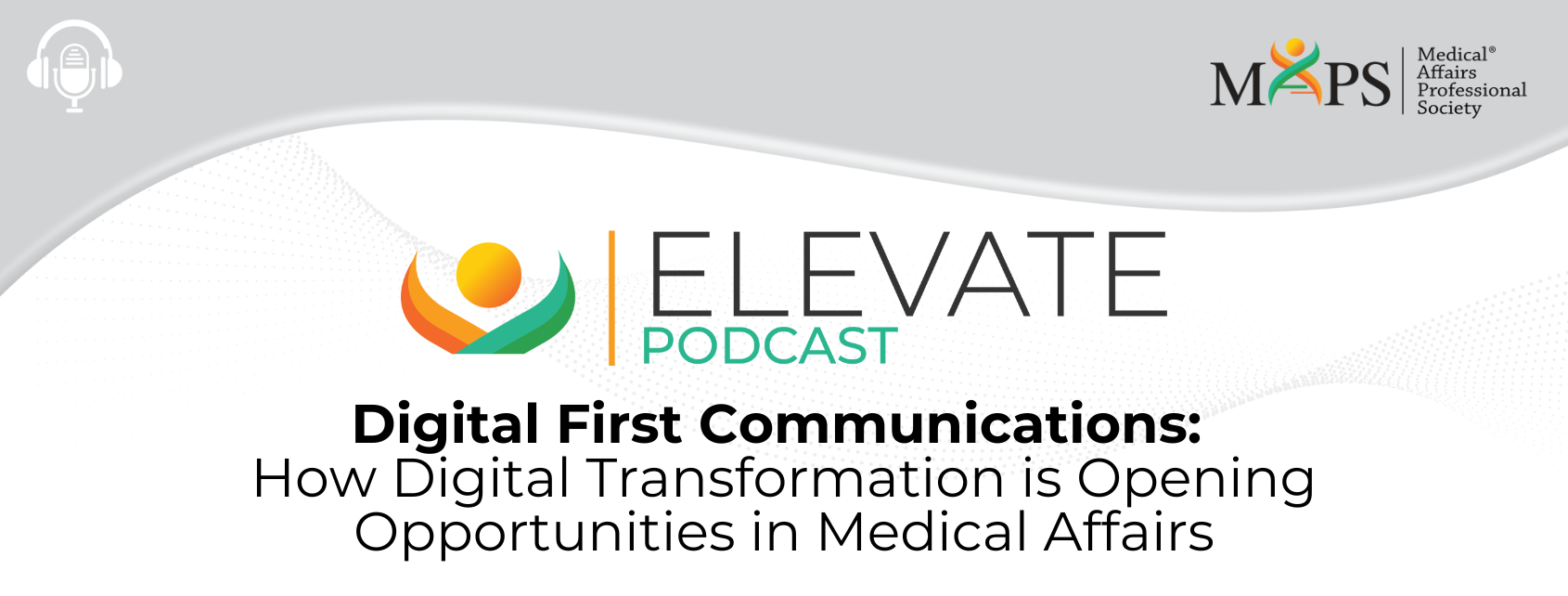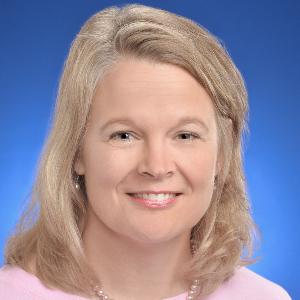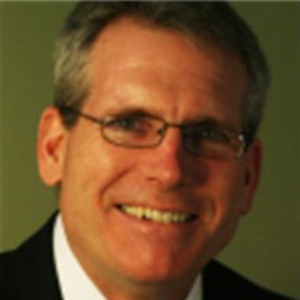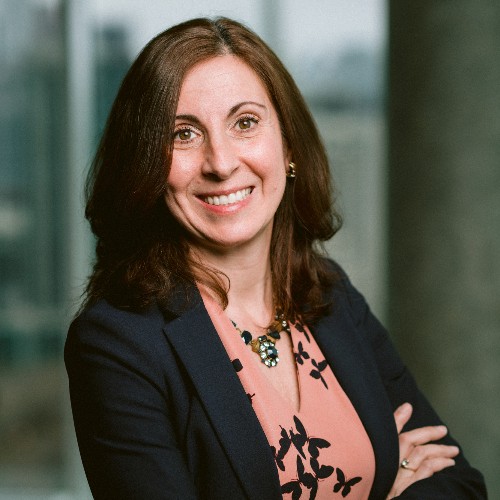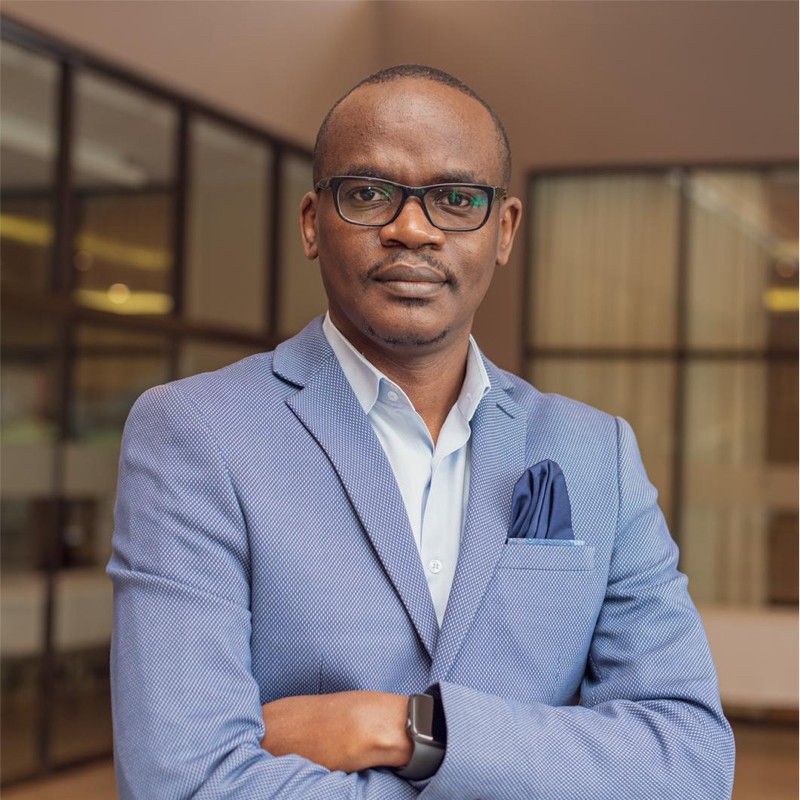Digital First Communications: How Digital Transformation is Opening Opportunities in Medical Affairs
Co-Moderator: Jennifer Riggins
Co-Moderator: Steve Casey
Speaker: Donnie Wooten Jr.
Speaker: Fran Paradiso-Hardy
Speaker: William Mwiti
Speaker: Brian Falcone
The views expressed in this recording are those of the individuals and do not necessarily reflect on the opinions of MAPS or the companies with which they are affiliated. This presentation is for informational purposes only and is not intended as legal or regulatory advice.
Recorded at the MAPS 2024 Annual Meeting in Puerto Rico following a workshop on modular content in which all of today’s speakers were faculty.
Lead by the Digital FAWG’s Jennifer Riggins and Steve Casey, today’s panelists touch on the topic of modular content in the following areas:
- Inspiration and Impact
- Content Compliance & Approval
- MSL Utilization
- Training & Evolution
- The Technology Stack
- The Future of Modular Content
For more information on Modular Content, explore the MAPS White Paper: “Modular Content in Medical Affairs: The Foundation of Omnichannel Engagement” linked below.
Following is an automated transcription provided by otter.ai. Please excuse inaccuracies.
MAPS 00:06
Welcome to this episode of the Medical Affairs Professional Society podcast: “Elevate”. the views expressed in this recording are those of the individuals and do not necessarily reflect on the opinions of MAPS or the companies with which they are affiliated. This presentation is for informational purposes only and is not intended as legal or regulatory advice. And now for today’s “Elevate” episode.
Jennifer Riggins 00:33
Hi, I’m Jennifer Riggins, welcome to elevate the Medical Affairs Professional society’s podcast as a series. Within this podcast, we focus on digital first, communications, how digital is transforming Medical Affairs. In these podcasts, my co-host, Steve Casey, and I speak with experts in the field of Medical Affairs and discuss how digital transformation is opening opportunities for Medical Affairs communicators.
Steve Casey 00:59
As Jen said in the opening, I’m Steve Casey of Omni HC, a co-host here on the Digital First Medical Affairs podcast series. This podcast episode focuses on the rising interest in modular content and how Medical Affairs can incorporate it. If you’re new to modular content and have not read the MAPS white paper, modular content and Medical Affairs the foundation of omni channel engagement, we strongly encourage you to do so before listening to this podcast. The white paper can be found by searching on the MAPS website. This podcast episode was recorded at the Medical Affairs professional society 2024, annual meeting, and literally right after the panelists finished a workshop on modular content, joining me on this episode are all five of the workshop faculty, which also includes my favorite co host, we’re going to have a conversation on modular content before we begin the panel. Would like the audience to know that the views expressed in this podcast are their own and do not reflect the views of their companies. So welcome everyone and thank you for being part of our podcast. Would everyone please introduce themselves so the listeners can better identify who’s speaking at any given time.
Donnie Wooten Jr. 02:04
Hi, I’m Donnie Wooten. I’m the Global Head of Strategic Medical Content and Oomnichannel at Organon.
Fran Paradiso-Hardy 02:09
Hello. I am Fran Paradiso-Hardy. I am the Head of Global Medical Communications at Astellas Pharma.
William Mwiti 02:15
Hi, this is William Mwiti. Medical Affairs Chapter Lead Africa, also served as Content Lead for risk for GSK.
Brian Falcone 02:23
Hi. My name is Brian Falcone. I am a Strategic Business Here at lean, at MedThink, and also a member of the Medical Communications Focus Area Working Group.
Jennifer Riggins 02:32
And I’m Jennifer Riggins, a co-author and panelist as well as Partnership and Technology Strategist at phactMI and co-host of this podcast. Unlike our normal interview style, we’re going to do this podcast slightly differently and see if we can have more of a panel discussion about modular content.
Steve Casey 02:49
Thanks, Jen first, let me thank the group for the growing body of modular content information that you’ve been diligently building. I believe both your workshops in the white paper are helping Medical Affairs professionals understand modular content and its uses today, Jen and I are hoping that we might delve a little deeper into modular content. We would like to cover questions in the areas of modular content, inspiration and impact, content, compliance and approval, MSL utilization, training and evolution, the technology stack. And finally, what you see is the future modular content. As we move along, we’ve identified questions for the specific members of the panel, but if you have additional comments, please just feel free to add the to the discussion with that. I’ll turn it over to Jen to start us off.
Jennifer Riggins 03:32
Great. Thanks, Steve. So hi everyone, and thanks so much for agreeing to be a part of our podcast. Fran, if you don’t mind, I’m going to start with you, especially since you are one of the two of our panelists here who work directly in Medical Affairs departments at pharma companies. So prior to your modular content implementation at Astellas, what challenges did your organization face regarding content development and delivery?
Fran Paradiso-Hardy 03:57
Thanks, Jen, and it’s really an honor to be here and very excited to be part of this panel and on a topic that I’m very passionate about. I think the biggest driver for us with regards to content creation, and modular content in particular, is we’ve moved towards omni channel in terms of ensuring that the right HCP receives the right content at the right time via the right channel. Content creation at our institution was going to increase exponentially, and so we really needed to think ahead in terms of what could we do to ensure that we had a scalable, scientific content ecosystem to meet this emerging, quickly emerging demands. The other big driver with regards to content creation, which is also equally important, is in the absence of a centralized scientific content ecosystem, this resulted in a lot of disconnected content deliverables that unfortunately provided inconsistent messaging.
Steve Casey 05:00
So. Donnie, how do you think the implementation of modular content is impacting existing Medical Affairs workflows and responsibilities within your organization?
Donnie Wooten Jr. 05:08
Thanks for the question. For me, I would say, versus really ensuring that we work even deeper out of silos with our cross functional partners. So that means strengthening our relationship with our BT Business Technology team and ensuring that we have all the necessary connectors and abilities to create a nominee channel plan, but also a modular content strategy, partnering deeply with commercial and aligning with them as they’re ahead in some of these spaces, and understanding ways of working that we can leverage and also around the world, I think, as it relates to the field medical team, we’re really focused on, how can we enable them to create content that’s relevant for their providers at a timely manner that works for them? So what I mean by that is, we’re creating those large subsets of slides now feel medical teams can go into their system of record and kind of piece together what is necessary for them to have that conversation without a robust amount of slides, so I would say really deepening the organization’s connectivity and alignment across the organization as a whole.
Steve Casey 06:07
Brian, what my agency is seeing is that most companies implementing modular content are large players who develop a lot of content. Are you seeing a desire for modular content with smaller companies as well?
Brian Falcone 06:18
Yeah, we are. And, you know, I think there’s a potentially a barrier to entry that some people consider based on the cost of the systems that are associated with the construction and delivery of modular content, but that shouldn’t deter people from trying to do modular content on a smaller scale. First, of course, is working with the regulatory team to really introduce them to the concept, get them familiar and comfortable with it, so that as they scale and grow, they can start to introduce modular content as it develops further, as well as they can start to explore, you know, different modular slide decks and ways that they can take the content that they already Have, rearrange that different ways. See how business rules are developed, how they’re implemented, how they’re followed through. Potentially have the ability to measure metrics depending on the system they have available to them, and just get comfortable with their toe in the water developing a framework that allows them to deliver modular content and deliver it via omni channel mechanisms.
Jennifer Riggins 07:20
So Fran, this next question is for you, what kind of impact have you seen from implementing modular content?
Fran Paradiso-Hardy 07:27
So I think the impact that we have been seeing, first and foremost, is efficiencies, right? And what I mean by this is that, you know, there is a cost savings from creating once and reusing everywhere, right? So that content reuse, as opposed to having to create a new, bespoke solution every time there’s a need. So that, clearly is one. The other is speed, I think, by, you know, having this modular content, which you’ve already heard the other panelists talk about, you know, you have the same pieces that allow you to create these different tools, as opposed to starting from scratch each time. But I think that probably the most impactful measure that really modular content will bring us is that ability to personalize the content and meet the needs of our stakeholders, because that, truthfully, is the direction that we need to go as an organization, and modular content is going to be critical with regards to giving us that adaptability and flexibility to meet their needs and their preferences. Absolutely.
Steve Casey 08:34
Okay. We’ve been talking about why to implement modular content. Let’s switch gears a bit and discuss what is needed to implement a modular content approach. Donnie, what is the essential technology within your modular content system?
Donnie Wooten Jr. 08:47
Yeah, I have the privilege of doing a Medical Affairs professional society MAPS workshop with with the panelists here, and we asked them, you know, how many of you are using Veeva MedComms As your system of record, and over half, if not more of them were using that. So we fall into that bucket as well. So that’s one of the essential things, but it’s also one of the complex things, because the way we use vault our Veeva is very different than the system of record for our commercial team. So when you’re talking about modular content, you want to make sure those things can connect across the aisle where we’re applicable and relevant. However, right now, it always is not as seamlessly connecting, and it’s not a US thing, specifically in my organization, is our solution provider. They do have a connector that is coming, but it’s just not there yet. So a lot of what we’re doing is a little bit of a manual process, but we’ve been focused on our field and getting them upscale in the interim of that connector come into play.
Jennifer Riggins 09:41
Thank you, Donnie. So Fran, were you able to source the technology off the shelf, or did you have to create new bespoke technology?
Fran Paradiso-Hardy 09:50
Yeah. So I think a lot of the challenges that Donnie had described are not unique. We also are experiencing the same situation at. Our institution. But I think what this allowed us to do is also take a step back, because modular content is not the solution. Is not just the technology. It does require a change mindset, and it requires everyone to think things differently. And what I mean by this is, you know, as a head of Global Medical communications, I have various different functions that all provide information internally and externally, but yet, everyone looks at their deliverables as being discrete and unique. They’re all connected. And so before having that conversation in terms of, well, you know, do we have the right technology? What is the best platform that we need? I needed to first take some time to help them understand and take a step back in terms of, how can we create a content, how can we create a module that would allow us to seamlessly help deliver, you know, standard or scientific response letter in medical information. And also, how could that same module help us in terms of creating central symposia content? And so I think that that was an important lesson for us, because otherwise, you the risk is that you could run into a situation where you over complicate and you over process, and so it’s really important that you break down the silos, that you ensure that everyone who’s at the table is looking at things in an enterprise, connected fashion, and that will help you as you start to to implement the the technology.
Jennifer Riggins 11:40
Yeah, and I think that’s a that’s a really great point, that technology is an enabler. The process should drive the technology, not the technology driving the process. So I’ll now open up the question, so William or Brian or even Steve, do you guys have any additional technology comments that you’d like to add.
Brian Falcone 12:01
So I’d like to add that the technology might be already available for your commercial colleagues who have been using it as part of a module of content delivery strategy, and probably a lot of lessons that they have learned going through the process and that can be adapted and brought to your side of the organization and to the Medical Affairs side. Now there are a couple of learnings that we need to kind of consider there. Not all the pieces are in place just yet, the regulatory considerations are much different. And so that’s a journey that you will need to go on, that commercial can help you, help navigate in some respects, but you also have to help your regulatory team understand that this is divergent from what commercial is doing, and that this is truly scientific, medical communication, material content that has goes through a different regulatory stream is not promotional, and it should be considered in a different way.
Steve Casey 12:54
Let’s turn now to the actual content and gaining approval, William as an expert in compliance, let’s start with you. Do you think it might be easier to start with certain types of content to gain MLR approval?
William Mwiti 13:06
Absolutely there’s certain content that don’t require a lot of work. I mean, if you look at things do with collaterals that support your externally facing websites, if you look at things like email templates, if you look at stuff that needs to go into social media, it will generally tend to take less time because there are less requirements in terms of, let’s say, referencing supporting claims and all that. So it might be easier to consider starting with this kind of content so that you learn on the job and are able to improve on the efficiencies from them.
Steve Casey 13:37
Has your experience with modular content expedited or made the review of materials easier.
William Mwiti 13:41
It certainly has if you look at how you’re reviewing it, you’re bringing content together. So in terms of referencing, the references will be the same. In terms of copyrights, you’re able to manage them better in terms of you know the category of content. It enables you to be able to put them together and review them even faster, and turn around the jobs much faster to be able to get back to market. So yes, I think modular content does expedite a review of materials.
Steve Casey 14:08
Do you think there are other strategies Medical Affairs professionals can incorporate working with their compliance team to bring modular content approaches on board? Absolutely.
Fran Paradiso-Hardy 14:16
I think the hurdles with regards to medical, legal review are very important hurdles, and if they’re not addressed right up front in alignment with your internal stakeholders, that could be that that could introduce an unnecessary challenge. I think the best solution is really to identify the right stakeholders and involve them in the journey from the very beginning, and I think you’ve heard from from William’s response, you know, having their input, their understanding of what modular content is and what it is not, I think will help with regards to ensuring that we have the appropriate infrastructure and processes in place. You. To avoid any unnecessary delays that just might be avoidable.
Brian Falcone 15:04
If I could add to that, you know, I think there are different techniques that you can use to help bring your regulatory colleagues alongside you, perhaps. And if you’re in a very highly digital social media focused space, you can invite a digital opinion leader in to kind of provide some context on why the communication of this information is so important via the multiple digital channels that are available to you. Could also bring in an HCP talking about the different ways that they consume information and showing different psychographic and behavioral areas in which they need to consume information, and how varied that is and why it is so important, from a compliance perspective, to get these messages out to people so that the drugs are used in a safe compliant and the way that’s best for the patient.
Jennifer Riggins 15:52
And Brian, I think you’ve alluded to this already in a little bit of what you’ve said. But how can an agency assist a client in, you know, really understanding and in the creation of modular content development and then through the approval process.
Brian Falcone 16:10
Yeah. So no thanks for the question. And I think, you know, there are different agency partners who have different roles in this. And so I’m going to speak from the perspective of my role as a content development specialist. And that way, I think a lot of it stems from making sure that we’re aligned on the strategy. And so MAPS, we have an integrated medical communication strategy and plan that takes you from the vision of why a drug was developed, was the promise. Why did we seek to develop this molecule or this treatment, and combines it with insights to come up with communication objectives that when you take in tandem with audience perspectives and needs and the channels that are available to you, allow you to synthesize a plan for communicating the importance and the need of this and telling the story for your product. The output from that plan are myriad, but one of them is an omni channel plan, and that can link up into how you the type of content that you need to develop from a modular approach. And so an agency can help you through the process of developing and sort of formalizing your strategy, coming up with those communication objectives, and then creating the content that is appropriate for use and distributions via these multiple channels.
Jennifer Riggins 17:24
And I’m just wondering, have you found a specific format that benefits most from modularization, like med letters or slide kits or…
Brian Falcone 17:34
Yeah, you know, I think writing out slide kits and some short form content are the easiest ones develop slides, because I think people are kind of very familiar with the slide sort of technology. They’ve used it before. It’s been around for a bit, and so many of us have been doing modular content for a while without even recognizing it. So that’s a piece of it. And then the short form content, just by the nature of the fact that it is short form, there’s less to have to regulate as part of the process. And so that’s where it’s good, where it’s going to start to come together as sort of the more expansive pieces, or the pieces that get into more detail, or those personalized pieces that we have the promise of the future of AI driven modular content development can bring us.
Steve Casey 18:15
I’m sure there’s some instances where compliance and medical firm weren’t always on the same page, especially in the development of your modular content. Can anyone speak to that and how they overcame it?
Jennifer Riggins 18:26
I guess I’ll start. And then please others jump in. I think I just want to echo what Fran has already said of involve your regulatory compliance legal teams very early in the process. They should be at your kickoff meeting, and then they should be a resource that you’re using throughout the process to ensure that you’re getting done what needs to get done. I have a favorite saying of always trying to get the approvals from no to yes if, and so being able to just put that mindset in play with our legal and compliance and regulatory people is really important to get them out of the no mindset, no, you can’t do this. Or no, we won’t approve this. To Yes, you can do this if you do XYZ.
Fran Paradiso-Hardy 19:17
I think another important point that is worth mentioning is that you know modular content is, it is has already been implemented in many pharmaceutical industries, on the commercial side, and so as you start to engage with your compliance, legal regulatory counterparts, it’s really important to help them Understand what modular content looks like, or will look like in Medical Affairs, from a Medical Affairs perspective, because I feel without that clarity, then there may be a potential for misunderstanding, and that could ultimately, you know, delay things in terms of, you know, trying to, perhaps getting to the No. Whereas you want to get to the yes and if right.
Jennifer Riggins 20:04
So let’s shift a little bit now, just to MSLs. So Donnie, I’m going to target you with this question. Let’s talk about MSL use of modular content. So in your organization, are MSLs using modular content, and how if they are?
Donnie Wooten Jr. 20:19
Yeah, it’s funny, as you say that I was like, they are, but I don’t even know if they know it’s modular content. So yeah, and I think that’s a part of like, educating your organization, letting people know what is modular content. What does omni channel mean? I will say I believe that the field is the most vital asset in Medical Affairs by way of their connection to the patient by their direct rapport with the provider. And I’ve been in the field, and I know a lot of times as MSLs, they’ll go and have robust conversations, just without content sometimes, but we know that there’s data that shows that individuals are more likely to take action when you show them something, when you share like if you think about when you go to the movies and you see that that pop up that comes and says, silence your phone. And you see everybody taking their phone out, and they’re silencing their phone. They’re taking action because they saw it right before their eyes. So I say that because we’re trying to implement the the necessity of of our field team understanding, yeah, you can have that conversation, but show them some content as well, and you can create that modularly that makes sense for you, and that provider that’s fair and balance, yeah,
Jennifer Riggins 21:23
So I think that’s a great example. Fran, do you have any examples within your organization of MSLs using modular content? Are you guys still working that path?
Fran Paradiso-Hardy 21:32
Yeah, I think this is definitely an area of opportunity for us, and for the reason that that Donnie indicated our field medical team really is a at a wonderful position to provide that personalization of content to their stakeholders, because they know them best. And so I think for us, as we move along that modular content journey, you know the that our MSL team need to be part of that, because they need to help us understand what type of modules, you know, what type of ecosystem would help them and enable them to to engage with their stakeholders.
Jennifer Riggins 22:10
And maybe Fran, you can start this off and and Donnie follow on, but what kind of training would be required for the MSLs in order to, you know, effectively use this modular content so,
Fran Paradiso-Hardy 22:21
So basically, really, that the training that is required is from a change management mindset we are all have. You know, we all creatures of our own habits. But I one of the the greatest features of modular content that we need to make sure we leverage in order to ensure that we continue to develop content that will meet the needs is dependent upon the metrics, and so we need to make sure that you know our MSLs are pulling the content from the system, using it in the right system, so that way we can capture that live feedback that will inform our strategy. You know, it’s an ecosystem.
Donnie Wooten Jr. 23:05
Yeah, I mean, I echo what Fran said. I think change management is huge for our whole organization right now. And another session, we raised our hand and asked, how many people are going through what I call transformation in their organization, meaning like a reorg, and almost half, if not, everybody in the room. So change management is huge, but in terms of the field, specifically the way we went about it, we went in and trained the MSLs hands on, like hands on. We joined each and every regional call to try and get them to understand how to create custom decks or custom modular content. It resonated pretty solidly in the US market. So we started trying to now scale that across the other markets and using a train the trainer approach. So you might have someone who’s a little bit on, you know, comfortable doing it, and you got to kind of get them to work and practice a little bit more, using that person to train someone else, and kind of get him or her to upscale their skills so that they could train someone else. So we gave everybody a training partner that they would have to train down the line. Seemed to work fine. We’re still having some struggles and making sure people use content in the system. So maybe they’re using the content, but we need them to use it in the system so that we can see what’s what’s the most relevant content being shared with our providers, and what’s resonating.
Jennifer Riggins 24:18
So, Fran, did your training focus primarily on the tools themselves, or was there an emphasis on the broader strategic benefits of modular content?
Fran Paradiso-Hardy 24:27
So we are still on that journey, that training journey, and I’ll have to tell you that at this point here, our training is still on helping individuals understand the why. Why do we need to move in this direction? Why do we need a new content creation approach, and what are the benefits of that we’ll receive? And more importantly, what is the risk if we don’t move? And I think that that, to me, is probably the most compelling argument, because we really won’t be able to meet these. Future demands if we continue to apply the same historical or legacy human resource intensive approaches, we have to be innovative to be successful. Yeah, and I think that’s that’s really important for all of the teams to know and to have as a foundational concept of of what they’re doing. They have to know the why? Why is this important for me to be learning this new technology? Why is it important for me to be learning this new process so that they can internalize it and then become effective at it down the road?
Steve Casey 25:32
Has everyone had the same experience regarding training and gaining utilization of modular content?
Donnie Wooten Jr. 25:37
I think similar to Fran, we’re on that journey too, and we’re really kind of anchoring some of our our Caboose, who are trained elements with commercial because they’re quite they’re ahead, but I think there’s a lot of education still needed so that, you know, senior leaders understand the value of moving in this direction and the importance of the risk if we don’t. So I think we’re in the same spaces as Fran.
Jennifer Riggins 26:01
So I think we’ve had a lot of great discussion already, but I think we’re going to have to wrap it up unfortunately, or we’re going to lose some listeners here, but I think we would be leaving out a very important opportunity to talk about what the future holds for modular content. So one last question. Over the last few years, everyone has been talking about omnichannel. Do you think modular content will become as big of a discussion as omnichannel? So William, let’s start with you.
William Mwiti 26:30
I think modular content will become a big as discussion as omni channel, because modular content basically drives omnichannel. You can’t have an efficient omnichannel practice without having modular content coming in to augment it. I’m also seeing a future in which many organizations start becoming comfortable and adopting modular content, and this obviously will be more beneficial to the compliance team, because you have fewer and fewer jobs, you are able to spend more time on them a higher quality and a higher throughput. So definitely a win, win for both the compliance regulatory teams and the commercial or medical teams.
Jennifer Riggins 27:09
Okay, so, Brian, do you envision future upgrades or changes to the modular content approach within Life Sciences organizations?
Brian Falcone 27:16
Yeah, absolutely. I think there’s a lot of opportunity for growth within this from different technologies being implemented. And I think the big one, of course, that everyone’s talking about is artificial intelligence, and what artificial intelligence can do as part of the modular content journey. So in terms of synthesizing content that is requested by an HCP, that has the potential to do that, where, you know, sort of on demand, where questions kind of come in and be synthesized and responded back without, you know, any oversight and without any need for regulatory or compliance review. That’s a nice way to do it. And also can report metrics back in sort of, not only a real time fashion, particularly if you know, if you’re getting a bevy of questions on a particular topic, but also provide context and scope for the type of questions that are being asked now. Whether or not AI in the future rock should be able to synthesize content is an interesting question, and how would that might develop. That’s a very exciting part of the journey, and I looked forward to seeing how that one evolves, but that’s probably a couple of years down the line, certainly from a regulatory and compliance perspective..
Jennifer Riggins 28:25
Yeah, absolutely. And I think this will transition us, Fran into our last question for you, do you think there’s a need for improvement in the tech stack that could facilitate larger scale, modular content implementation?
Fran Paradiso-Hardy 28:36
Absolutely, the way I look at this is that, you know, there will likely never be one platform that will provide a solution for everyone. And so what will be really, really critical as we start to implement these various platforms is the interconnectivity. Because, once again, our stakeholders are seeking answers to their questions across a multitude of channels, and we need to make sure that we start this, start this modular content creation with the right format that will seamlessly travel across these platforms. We’re not there yet. I don’t have the answer, but as Brian indicated I’m really excited to see what the technology is holding us, because it’s it’s evolving faster than I can even imagine. And this is not just myself talking to my digital excellence colleagues within the organization, and they’re saying, Well, you know, if you would ask me this question two weeks ago, Fran, I would have given you a different answer than today. That gives you a sense of how quickly it is evolving. So it’s a really exciting time.
Jennifer Riggins 29:47
And Donnie, you get to close this up here with the final question, what do you think the future holds for modular content and the Medical Affairs profession?
Donnie Wooten Jr. 29:56
Well, thank you for this space to have this conversation, and for MAPS. Who’s been continuing this conversation through white papers, like you all did. I think the future holds what’s important around content and a part of omnichannel is like timely communication. I think the more effective we’re able to create content, the more effective we’re able to meet the needs of patients and providers and payers around the world. I imagine a future where we have a new product coming to market and regulatory has already been involved, and create tax on taxonomy around how that should be labeled in the system of record. So then you can easily provide content for a subject a provider initiation visit, so he or her can, you know, start enrolling patients into their studies. And then also, as you move into the field or into content around the world. It just all seamlessly integrates together. I mean, obviously, like Brian said, AI is going to be topped on top of some of this stuff. How effective it will be? Who knows, but I do see a future where we’re meeting time and content in a really efficient way.
Steve Casey 30:56
Hey, I want to thank all of our panelists. We hope you’ve enjoyed our discussion on modular content. If you enjoyed the podcast, please make sure to like it and feel free to comment to us. You can find our contact information on LinkedIn. Thank you for joining us today and listening to our podcast series, Digital First Medical Affairs, a podcast production of the Digital Focus Area Working Group of the Medical Affairs Professional Society. This concludes our podcast.

